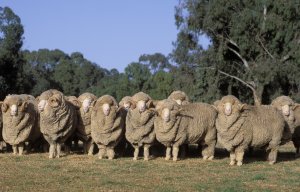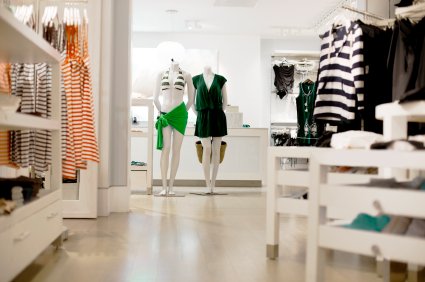
AmericanWool.org launches to educate consumers
New Harris Poll finds consumers will take strong action, boycotting companies, writing negative reviews and reporting to regulatory bodies.

25th July 2018
Innovation in Textiles
|
Stony Brook, NY
These are the results of a survey of over 2,000 US adults 18 and over, conducted online during June 2018 by The Harris Poll on behalf of Applied DNA Sciences, the leader in DNA-based authentication.
“This survey confirms that selling inauthentic products can be extremely detrimental to companies and their brands,” said James A. Hayward, PhD, Chairman, President and CEO of Applied DNA Sciences. “In fact, nearly all Americans (94%) say that, if they found out a product they bought at full price was inauthentic, they would take action.”
Among those who would take action:
Additional findings of the survey suggest that Americans disapprove of unethical business practices and the use of forced labour when it comes to companies they purchase from, and they are not naïve to the fact that these practices are prevalent. Nearly three quarters of Americans are concerned that products they purchase could be made using forced labour or by companies that use bad business practices (74% and 73% respectively).
Differences arise when it comes to gender and age: Women are more likely than men to voice concern about forced labour (80% vs 69%) and companies with bad business practices (79% vs 66%). Older adults, ages 65+, are more likely than their younger counterparts to feel forced labour may be rampant, 81% are concerned about this when it comes to the products they purchase compared to 73% of 18-to-64-year-olds.
The prevalence of inauthentic products is growing significantly. The 2018 Global Brand Counterfeiting Report stated that counterfeiting globally reached US$ 1.2 trillion in 2017 and is expected to reach US$ 1.82 trillion by 2020. The US Customs and Border Patrol (CBP) published statistics for the fiscal year in 2016 that showed 31,560 seizures of intellectual property rights (IPRs), up 9% from the previous fiscal year. CBP estimated that the total manufacturer’s suggested retail price (MSRP) of the seized goods would have equalled approximately $1.4 billion if they were legitimate products.
“Years of technological advancement have made it harder to spot inauthentic products,” added Dr Hayward. “As a result, consumers are deceived into purchasing an inferior or unethically produced product. We offer an authentication solution to manufacturers by using biotechnology as a forensic foundation to track products on a molecular level from source to seller. It provides supply chains with scientific proof and physical traceability of materials and products.”
“The proliferation of counterfeit products is not only a threat to American brands, but also to American consumers,” said Stephen Lamar, Executive Vice President of the American Apparel & Footwear Association. “While lost sales and brand equity are certainly concerns, the dangers of buying a product that does not meet product safety requirements, was made in an unregulated factory, or that does not meet quality standards is very real. Creating better public policy, educating consumers, and taking advantage of emerging technologies are all essential components in the fight against intellectual property theft.”
Consumers can become more proactive to ensure an authentic purchase. The United States Government Accountability Office suggests that consumers become familiar with the brand and know its products. Consumer should also buy only from trusted retailers, know the difference between “fulfilled by” and “sold by,” and be wary of “too good to be true” prices.

Business intelligence for the fibre, textiles and apparel industries: technologies, innovations, markets, investments, trade policy, sourcing, strategy...
Find out more